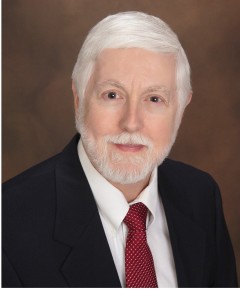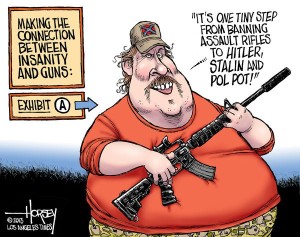I’ve met a lot of people who like guns. Although a large number are older, white and male, there are increasing numbers of women, a mix of ethnic and racial groups, all religious identities (or none) and all ages from all walks of life.
We include all types of personalities, lifestyles and other interests. So we are pretty much like any mix of Americans, linked because we appreciate firearms and what we can do with them along with valuing our right to keep and bear them.
We may talk about ‘gun culture’ but really there isn’t a gun culture. ‘People of the gun’ (POTG, a neat phrase) engage in many varieties of shooting and hunting activities, may admire the fine craftsmanship and history of firearms, or may depend on them as tools in their daily work or even for survival. Our non-firearm political causes are all over the map.
We are as many as half of all Americans, owning well over 300 million guns. We are unusually law-abiding. These are ourselves, our family members, our co-workers and our neighbors.
At least that’s how I see gun owners, and how I know I am seen by people who know me. There is no one way to describe my fellow POTG beyond interest in firearms and the concomitant desire that our right to them not be infringed.
Then why do we get stereotyped by some people who don’t want or use firearms? Even more interesting, why do some of those people need to typecast us, despite our diversity reflecting their own?
To some degree, we all stereotype others (positively and negatively). These thumbnail assumptions can help us respond customarily to others without needing to give it much thought. That’s the problem, too, of course. We recognize this most when it is applied to us.
When stereotyping really goes over the top, it’s laughable, which is a good way to respond to ludicrous assertions about guns and gun owners. Take Guns (“Please!”, hat tip to Henny Youngman), one of the more brainless songs of the past 50 years. “I don’t know what it takes for you to need a gun” expresses the ignorance that propels other lyrics that insult gun owners’ intellect, ethics, responsibility and sexual adequacy (always a popular meme).
This very creative video satirizes how gun advocates sound to “normal” people, contradicting the truth that gun advocates are normal people. It’s sponsored, unsurprisingly, by Everytown for Gun Safety and The Coalition to Stop Gun Violence. The comments that follow it handily take down every idea in this fluff.
When stereotyping is used for political gain, it’s directed at people who haven’t yet formed an opinion and aren’t likely to do so on logical grounds (the ‘low information voter’). Aren’t we “a minority of people … that terrorizes the majority of people” in this country? One could almost forget that we (those who approve of gun ownership and feel safer with than without) are the majority of Americans who would protect ourselves and others from those who do terrorize us.
Castigating the big, bad NRA as the “fringe” organization certain politicians dearly wish it were is about all they can do about it. Seen for what it is, the effective representative of the majority view of its activist membership, it probably seems even more threatening.
When a Columbia University professor writes “worshipping guns or being a gun nut makes them just terrible people”, I’d take that as irrational negative stereotyping. Socially inappropriate behavior, intentional or not, knows no bounds, certainly not in academia.
It is almost certifiably crazy to believe in a lot of what the ‘anti-gun violence’ crowd wants. Why does anyone promote guaranteed victim (I mean, ‘gun-free’) zones when concealed carriers are so much more law-abiding that the rest, more accurate shots than police, and an effective deterrent to crime? How can even the most motivated confiscationist imagine that would be possible in a country with at least a gun per person and over 90% civilly disobedient refusal to register newly defined illegal ‘assault’ weapons (in New York and Connecticut)? Why not just show us all how much easier and safer it is to stop robbery, assault and rape with common household utensils instead of those nasty guns that are more liable to turn themselves on the owner than to do what they are told?
This is why. As a psychiatrist, I understand a lot of human behavior as expressing psychological defense mechanisms. These are habits of perception that protect a person from experiencing undesirable realities, based on their own history of experiences and natural responses. Let’s review some, which together can explain a lot of hoplophobia:
- Rationalization: “It can’t happen to me.”
- Identification: Putting down those pro-gun clowns like celebrities and media idols do.
- Displacement: When the target of the anger becomes the tool and the responsible user, rather than the wrongful use of it and the malicious user.
- Projection: Some anti-gunners have a sense that they shouldn’t trust themselves with deadly power, so therefore no one can be trusted.
- Regression: Name-calling, belittling, carrying dildos to protest concealed carry on campuses.
- Reaction formation: Believing you mean it when saying “No one wants to take your guns away” or “I believe in the Second Amendment”. (It’s just lying when you know you don’t mean it.)
- Repression: Like the homophobia of some repressed homosexuals, some people can be so attracted to the idea of doing violence that they can’t allow themselves to know it and may reject any symbol of that desire.
There are other named defenses, some more mature and healthy like suppression, consciously choosing to delay facing distress (“Boy am I angry at you, but I’ll shelve that in order to try to work with you”). Humor is another, highly recommended when encountering anti-gun prejudice and mud-slinging.
We need to get past ourselves and see each other for who we are. Then we might be able to address issues with reason, rather than through our self-protective veils of presumption. Even some progressives see how we need to think about each other differently.
‘Gun nuts’ aren’t nuts. And that’s authoritative, coming from a psychiatrist.

— DRGO editor Robert B. Young, MD is a psychiatrist practicing in Pittsford, NY, an associate clinical professor at the University of Rochester School of Medicine, and a Distinguished Life Fellow of the American Psychiatric Association.

